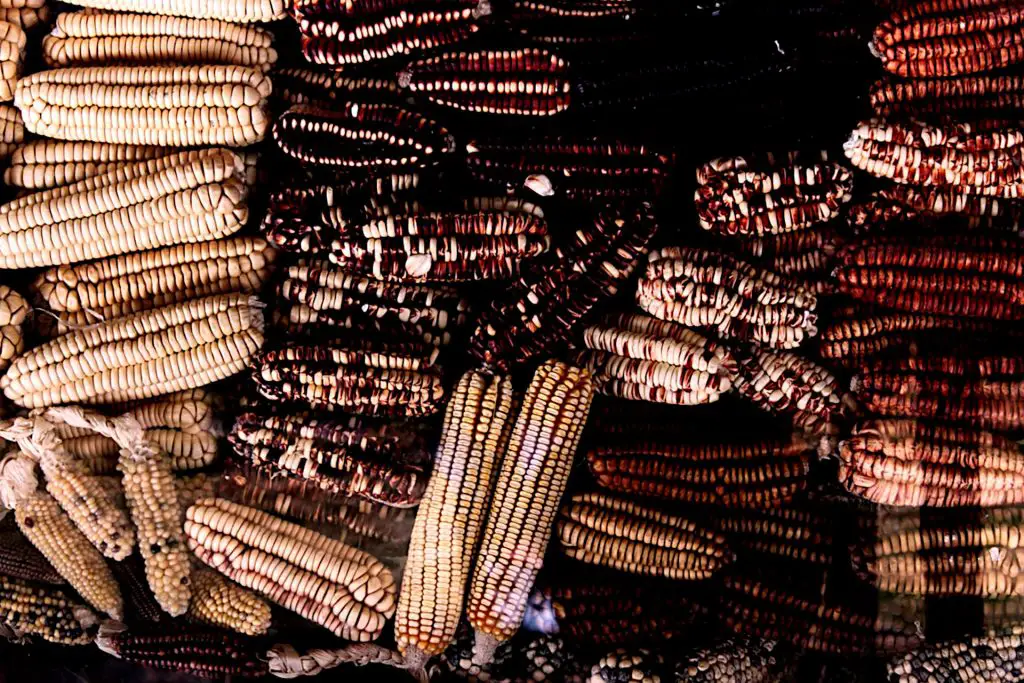Can You Compost Corn Cobs? | How to Compost Corn Waste
Corn cobs, being an organic material will compost. Indeed they contain many nutrients that are beneficial to your soil. There are though a few factors to take into consideration that will impact largely on the length of time that the decomposition process will take.
Can you compost corn cobs?
Corn cobs are often thrown away because they don’t look attractive or seem too useful it is often asked if you can compost them instead?
Corn cobs are stalks from the corn plant. They are usually discarded after harvest, but some farmers sell them at markets. If you want to get rid of these waste materials, you can compost them.
You can compost corn cobs by mixing them with other organic materials such as leaves, grass clippings, shredded paper, and manure. The mixture should be turned regularly until it decomposes completely.
Corncob composting has become a trendy way to recycle food waste into organic fertilizer. Is it really worth it?
Corncobs are a great source of nitrogen, potassium, phosphorus, calcium, magnesium, iron, zinc, copper, manganese, and boron. They also contain fiber, protein, vitamins, and minerals.[1]
You can compost them at home or get your local community garden to accept them. If you don’t want to take the time to collect them from your kitchen, you can buy pre-composted corncobs from stores such as Whole Foods Market.
Can Cooked Corn Cobs be Composted?
It doesn’t matter whether the corn cob is raw or cooked both will decompose but you will find that corn cobs that have been cooked will decompose slightly faster. This is because the cooking process helps break down some of the carbon elements and lignin coating to soften the cob making it easier for the microbes to attack it.
How long does it take corn cobs to decompose?

While corn cobs are decomposable, they can take a long long time to break down, even in a compost pile.
This is because they contain a waxy coating, called lignin, which protects the kernel while growing but lignin also makes it difficult for microorganisms to digest meaning that the decomposition process will be longer.
The second factor that influences their decomposition time is their carbon to nitrogen ratio (see chart below). Corn cobs have a ratio of 80:1 (C/N) which means they are carbon-rich and classed as brown materials.
Brown materials take much longer to break down than green materials because of the lower nitrogen levels. Corn cobs if left naturally will decompose in about 4-6 months, similar to other brown materials such as leaves.
As will all organic materials how you compost your corn cobs also has a bearing on the length of time decomposition takes as different processes produce finished compost in different lengths of time.
Cold composting corn cobs
If you are using a regular cold composting process corn cobs will decompose, in around three months, depending on a couple of factors. Firstly, how nitrogen-rich your pile is, for cold composting, this should be between 30-35:1 (C/N). Secondly, on how often you turn the pile to aerate it, again, with cold composting usually every 10-14 days.
When constructing your compost pile you should add your corn cobs in with the other brown material layers. It is helpful if you cut up the cobs as this aids the decomposition process. The corn kernels themselves are helpful to the composting process because they contain little pockets of air which, when reacting with the nitrogen in the pile, can initially help with decomposition.
Hot composting corn cobs
If you are a proficient composter or have more time to tend your composting pile then you can speed up the decomposition process by using the hot composting technique. This will require to have a higher nitrogen content in the composting pile and much more regular aerating to get oxygen into the mix.
Generally speaking your compost piles carbon to nitrogen ratio should be 25:1 (C/N) or just under and you should turn your pile every two to three days monitoring the temperature to ensure it is around 130 F
In terms of preparation instead of layering green and brown materials, you should chop all the materials, including your corn cobs, into small pieces and mix them together.
Carbon to Nitrogen Ratio of Corn Cobs and Stalks
| Material | C/N Ratio |
|---|---|
| Corn Cobs | 80:1 |
| Corn Stalks | 75:1 |
Burying corn cobs
There are some people that choose to bury corn cobs. While the cobs will eventually decompose it could take between 3-5 years for this to happen because of a lack of oxygen.
Using a composting bin for corn cobs
You can compost corn cobs in a compost bin too. First, remove the husks and silks from the cob. Then cut off the ends of the cob and soak it in water overnight. Next, place the soaked cob into a large container filled with soil. Cover the container with a lid and let it sit for two weeks. After that time, turn the pile over and add some fresh soil. Repeat this process every week until the cobs are fully decomposed.
Do corn husks break down in compost?
Although husks and stalks of corn can be composted, they do not break down easily, with corn stalks taking between 180-360 days to decompose in a compost pile.
As such they should not be composted in piles with other materials. Instead, husks, stalks, and cobs can be composted separately in a bin, with other high-nitrogen materials, such as grass clippings, weeds, or kitchen wastes.
If you have access to a shredder, you can shred the stalks and husks, and compost them with other high nitrogen materials.
Summary
Can you compost corn cobs? The answer is a definitive yes. They are an organic material full of beneficial nutrients that will help the health and quality of your soil.
They are excellent as a brown material for bulking out your composting pile. The key thing to consider is the length of time that corn cobs, corn stalks, and corn leaves take to decompose.
The most efficient way to compost them will depend on your time and experience but the result should be healthy nutrient-rich finished compost.
Notes
[1] Aildson Pereira Duarte: Reference Values of Grain Nutrient Content and Removal for Corn
